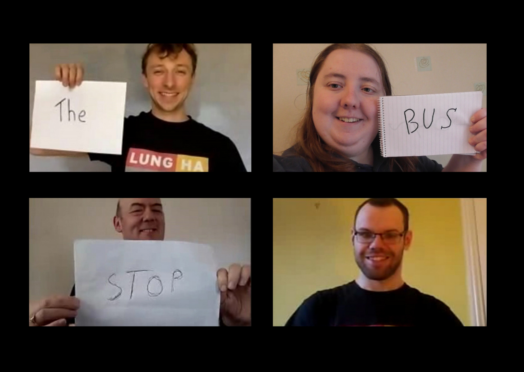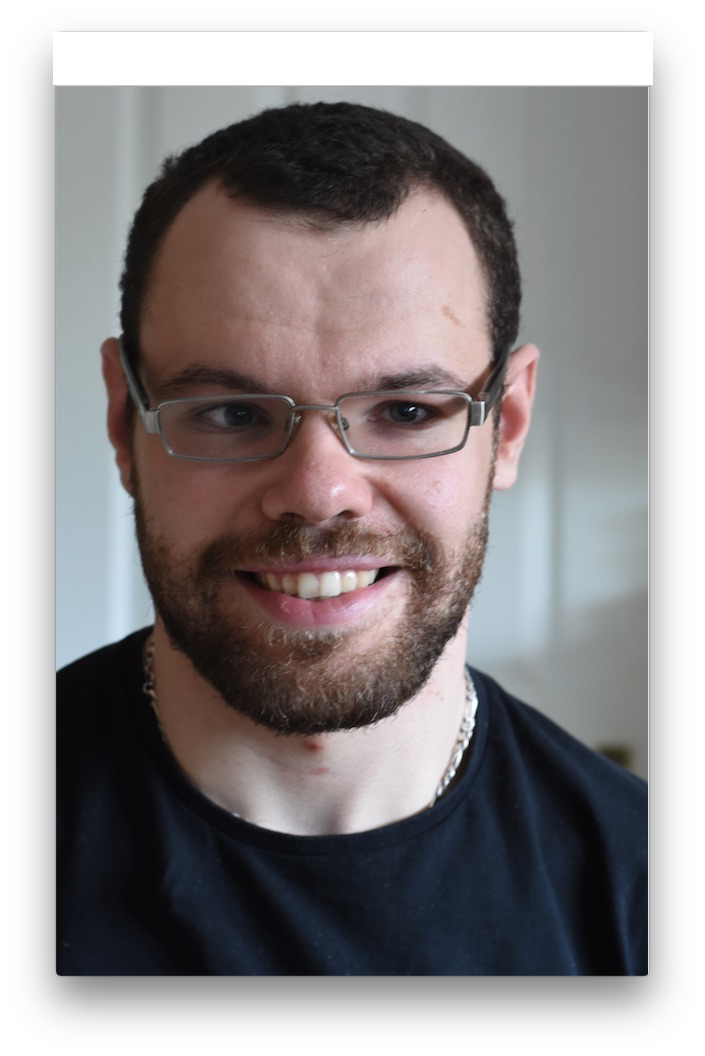
When actor and playwright Gavin Yule was subject to a hate crime about his disability, he never imagined it could eventually turn into something positive.
But two years after the incident, the verbal assault has lead to him writing and performing in his own play about what happened.
The Bus Stop is presented as part of Traverse Theatre’s online festival and produced by Lung Ha, Scotland’s leading theatre company for people with learning disabilities.
It follows the story of wheelchair user Jack, who, like Gavin, has a form of Cerebral Palsy and Asperger’s Syndrome and who was abused by a member of the public while waiting for a bus in Edinburgh.
“The Bus Stop came out of something not very nice, which still happens to too many people with disabilities in Scotland,” explained Gavin, 26.
“A woman waiting to get on the bus behind me was annoyed when the bus driver couldn’t get the removable seat area on the bus for a wheelchair to budge and it was taking a long time.
“She was making a lot of fuss then I don’t know if she thought I could hear or not, but loudly in front of everyone she said ‘I’m going to complain, we all have the right to complain, even that wheelchair.’
“Although the hate crime I experienced was verbal, the effects of it stayed with me far longer than a physical scar ever could.
“Because of the effect it was having on me, a friend suggested I write out what happened and how I was feeling to try and help process my emotions.
“Writing it in script form – the only way I really know how to write – I eventually showed it to a theatre director friend who wanted to develop it further, and that passage became the whole second act of The Bus Stop.”
Around one fifth of Scotland’s population – one million people – define themselves as disabled, yet this is still a group which is still very much underrepresented in the arts, believes Gavin.
“I work predominantly with Lung Ha, so I think personally in the theatre sector, there is a definite shift in making sure that actors and artists with disabilities are represented.
“But in TV and film, I think there is definitely still a huge lack of disabled people on screen.
“Even when it comes to casting for a disabled person part, you still often see able-bodied people being used to play people in wheelchairs for example.
“They open up the auditions to someone with disabilities but then go with someone without, who doesn’t have that lived experience. It just doesn’t make much sense.”
It’s 25 years this month since the Disability Discrimination Act was passed in the UK, but the Crown Office’s annual Hate Crime in Scotland report, released earlier this year, showed that hate crime offences against those with disabilities has risen sharply year on year, from 48 in 2011, to 387 in 2020.
To tackle rising levels of hate crimes against certain minorities in Scotland, Humza Yousaf’s Hate Crime and Public Order Scotland bill – currently in Stage 1 of consideration by the Scottish Government – has been proposed, but has caused much controversy with those in opposition believing it could put a stop to freedom of speech.
Gavin, however, believes there needs to be a happy medium and for people like him to feel safer in their day to day existences.
“When I experienced the hate crime I didn’t report it because I actually thought the woman was simply exerting her right to free speech,” he said.
“It was only once I spoke more about it that I realised I had experienced something pretty terrible.
“And I think that’s the issue – we often just let things be swept aside, not realising how much of an impact these abuses can have on people experiencing them.
“For instance, for people living with disabilities, I think the disability or the wheelchair, for example, is the only thing people see, they don’t actually realise that there is a living breathing, human being beyond that who their words or actions can really affect.”
Although the hate crime was something Gavin found deeply traumatising, he says in some ways he is glad it happened.
“Without the incident, I wouldn’t have this play, so I have to look at it positively,” he explained.
“And I hope more good comes from people watching the play. I want people to become more aware of the abuse that still happens to disabled people living in Scotland, and how deeply these verbal actions, as well as physical, can cut.”
The Bus Stop, showing as part of Traverse’s Online Festival until December 8. Tickets available: www.traverse.co.uk/whats-on/event/the-bus-stop
If you have been affected by a hate crime in Scotland and would like to speak to someone about your experiences, click here.

Enjoy the convenience of having The Sunday Post delivered as a digital ePaper straight to your smartphone, tablet or computer.
Subscribe for only £5.49 a month and enjoy all the benefits of the printed paper as a digital replica.
Subscribe